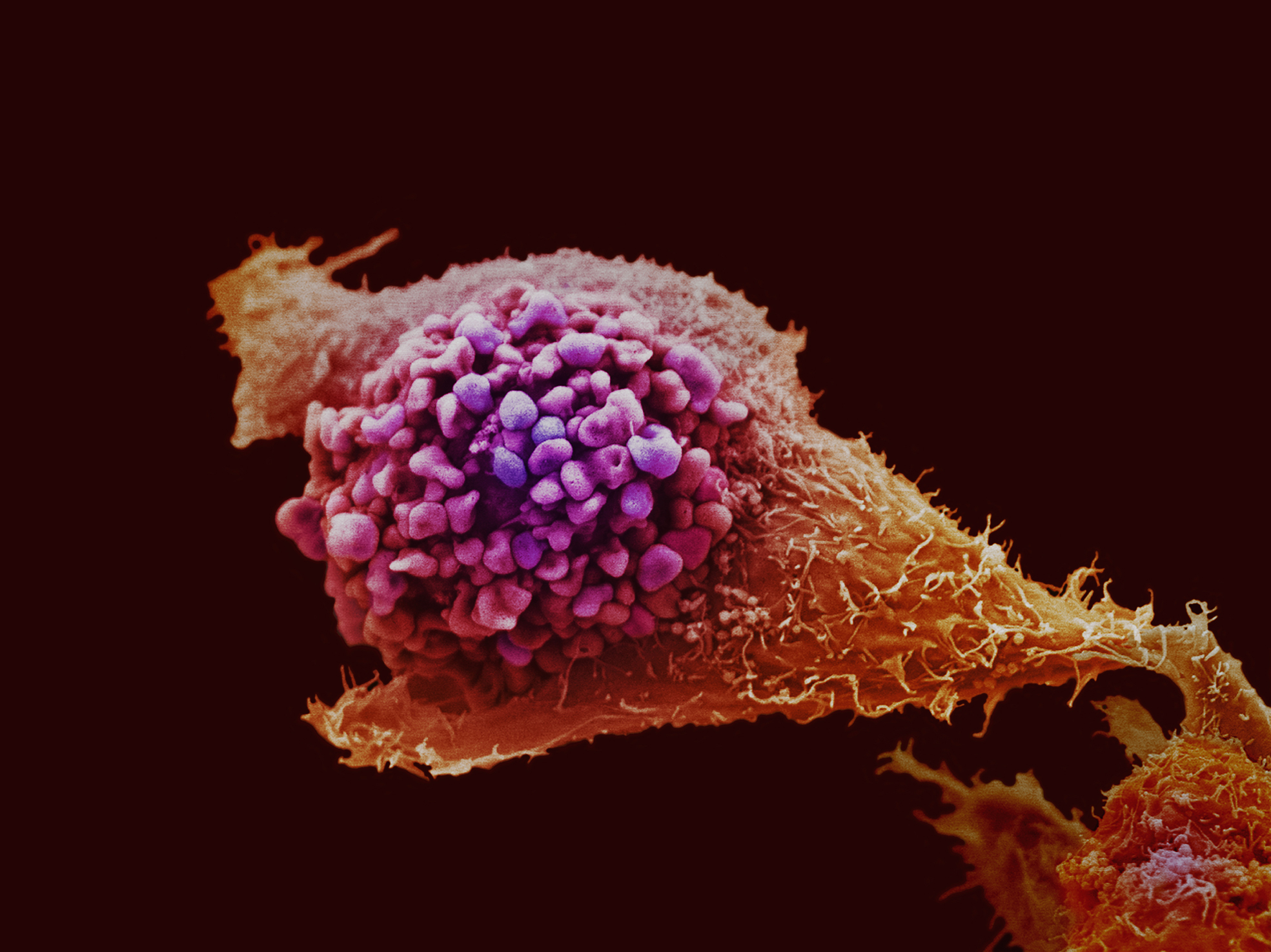Cancer Research UK-funded scientists at the Institute of Cancer Research in Surrey have been testing a new way to kill bowel cancer cells with a kind of "smart bomb". The technology is called GDEPT, which stands for Gene-Directed Enzyme Prodrug Therapy, and it's based on a rather clever virus, and a harmless chemical that goes by the catchy name ZD2767P, known as a prodrug. 
The scientists, led by Professor Caroline Springer, have engineered a harmless cold virus to contain an enzyme called Carboxypeptidase G2, or CPG2. The enzyme is only activated when the virus infects cancer cells, because it's designed to respond to telomerase - a protein that makes around 8 out of ten cancers immortal. Then when the cells are given the prodrug, the CPG2 enzyme coverts it to a powerful cancer-killing drug. The scientists tested their technique in bowel cancer cells grown in the lab, then in mice with bowel tumours. They found that GDEPT could double survival in mice that had been treated, compared to those that hadn't. In a double-whammy, the researchers also found that dying cancer cells produced signals that killed neighbouring cancer cells, increasing the effectiveness of the treatment.
And because healthy cells don't have telomerase, they don't activate the enzyme, so they don't make the killer drug.
Current cancer treatments often damage healthy cells as well as cancer cells, causing unpleasant side effects. But targeted treatments like GDEPT should be more specific for cancer, reducing side effects. It still needs more work before it's suitable for clinical trials in cancer patients, but GDEPT could prove to be a useful therapy for cancer in the future.
- Previous What’s the matter?
- Next Weather forecast that's out of this world










Comments
Add a comment